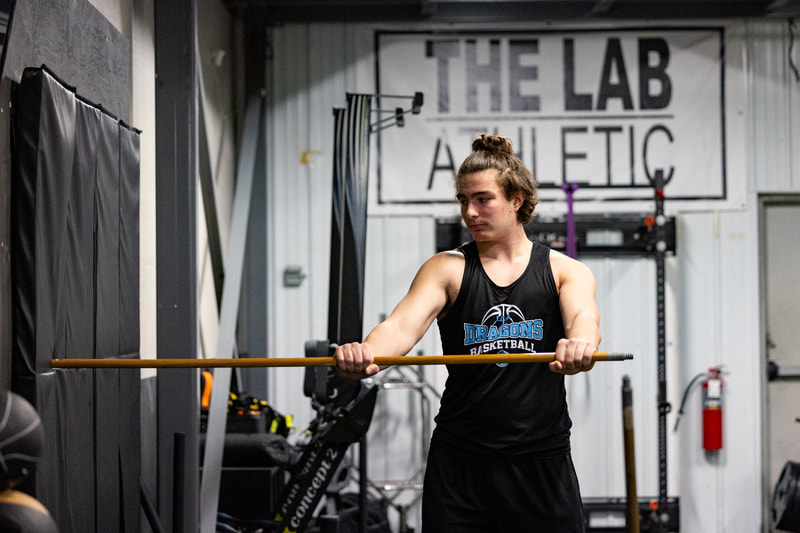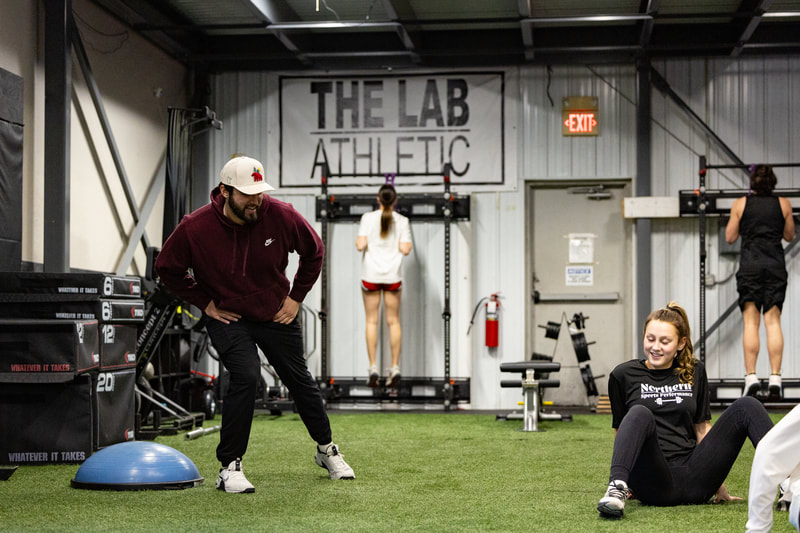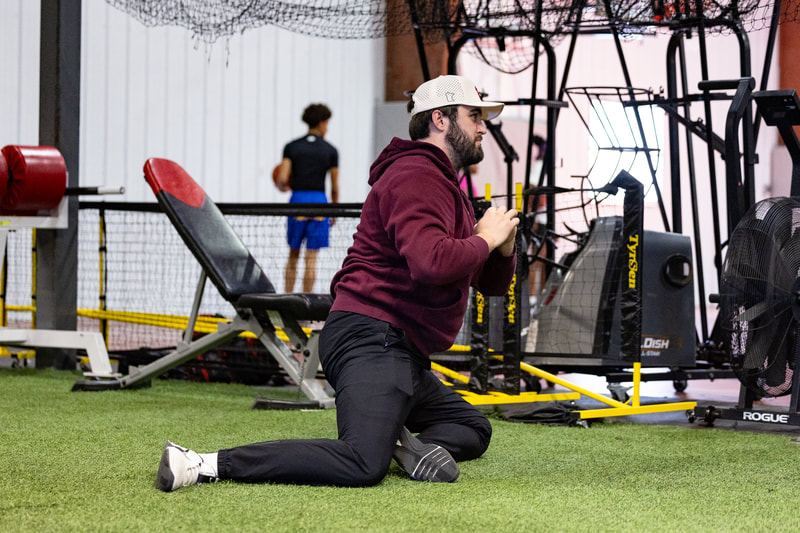|
Whether you dream of scoring the winning goal in a championship game, breaking records on the track, or mastering a new athletic skill, achieving your sports aspirations requires more than just talent—it demands dedication, perseverance, and strategic planning. Here are some key strategies to help you turn your sports dreams into reality.
1. Set Clear and Achievable Goals Start by setting clear, specific, and achievable goals that align with your sports aspirations. Break down your long-term aspirations into smaller, manageable milestones that you can work towards consistently. Whether it's improving your speed, mastering a new technique, or making the starting lineup, having well-defined goals provides you with a roadmap for success and keeps you motivated and focused on your journey. 2. Develop a Growth Mindset Cultivate a growth mindset—a belief that your abilities can be developed through dedication and hard work. Embrace challenges as opportunities for growth, learn from setbacks and failures, and persist in the face of obstacles. By adopting a positive and resilient attitude, you'll be better equipped to overcome adversity and continue progressing towards your sports aspirations. 3. Commit to Consistent Training and Practice Consistent training and practice are essential for honing your skills and maximizing your potential as an athlete. Create a structured training regimen that includes a mix of skill-specific drills, strength and conditioning exercises, and simulated game or competition scenarios. Make a commitment to showing up and putting in the work day in and day out, even when motivation wanes or obstacles arise. 4. Seek Expert Guidance and Feedback Don't be afraid to seek guidance and feedback from coaches, trainers, and mentors who can help you refine your technique, develop strategic game plans, and optimize your training approach. Value constructive criticism as an opportunity for improvement and growth, and be open to trying new approaches and techniques suggested by experienced professionals. 5. Take Care of Your Body and Mind Physical and mental well-being are crucial for sustained athletic success. Prioritize proper nutrition, hydration, rest, and recovery to fuel your body and optimize performance. Incorporate cross-training, flexibility exercises, and injury prevention strategies into your routine to maintain overall health and resilience. Additionally, prioritize mental health by practicing mindfulness, visualization, and stress management techniques to stay focused and mentally sharp. 6. Embrace Competition and Learn from Experience Embrace competition as a valuable opportunity to test your skills, challenge yourself, and measure your progress against others. Approach each competition with a competitive yet sportsmanlike attitude, focusing on giving your best effort and learning from both victories and defeats. Analyze your performance, identify areas for improvement, and adjust your training and preparation accordingly to continue evolving as an athlete. 7. Stay Persistent and Never Give Up Above all, stay persistent and resilient in pursuit of your sports aspirations. Understand that success rarely comes overnight and requires dedication, patience, and perseverance over the long haul. Stay committed to your goals, stay focused on the process, and never lose sight of the passion and drive that fuel your journey as an athlete. Remember that setbacks and challenges are inevitable, but they are also opportunities for growth and learning. Keep pushing forward, stay true to your aspirations, and trust in your ability to achieve greatness in the world of sports. In conclusion, achieving your sports aspirations requires a combination of goal-setting, growth mindset, consistent training, expert guidance, self-care, competition, and persistence. By embracing these strategies and committing to your journey as an athlete, you can unlock your full potential and turn your sports dreams into reality. So lace up your shoes, hit the field, track, or court, and embark on the exhilarating adventure of pursuing your sports aspirations with passion, determination, and unwavering dedication. In the fast-paced and strategic world of basketball, the point guard holds a unique and pivotal role. Often referred to as the "floor general," the point guard is tasked with orchestrating the team's offense, distributing the ball, and setting the tempo of the game. But what qualities distinguish a good point guard from the rest? Let's explore the key attributes that define the essence of a skilled and effective point guard.
1. Exceptional Court Vision At the heart of a good point guard's game is exceptional court vision—the ability to see the entire court, anticipate plays, and make split-second decisions. A good point guard possesses a keen awareness of their teammates' positions, defensive schemes, and scoring opportunities, allowing them to effectively read the game and create scoring opportunities for their team. 2. Masterful Ball Handling Skills Ball handling is a fundamental skill for any basketball player, but it's especially crucial for a point guard. A good point guard exhibits superior ball handling skills, including dribbling, passing, and protecting the ball under pressure. They can navigate through traffic, evade defenders, and deliver pinpoint passes with precision and accuracy, facilitating ball movement and creating scoring opportunities for their teammates. 3. High Basketball IQ Basketball IQ encompasses a player's understanding of the game, strategic awareness, and ability to make smart decisions under pressure. A good point guard possesses a high basketball IQ, recognizing defensive schemes, exploiting mismatches, and adapting to changing game situations. They know when to push the pace, when to slow down the tempo, and how to effectively manage the clock to maximize their team's chances of success. 4. Leadership and Communication As the floor general, a good point guard is a natural leader on and off the court. They possess strong leadership qualities, including confidence, poise, and the ability to inspire and motivate their teammates. A good point guard communicates effectively with their teammates, providing direction, encouragement, and constructive feedback to keep everyone on the same page and working towards a common goal. 5. Defensive Tenacity While much emphasis is often placed on offensive skills, a good point guard also excels on the defensive end of the court. They possess quick hands, lateral quickness, and defensive instincts that allow them to pressure opposing ball handlers, disrupt passing lanes, and create turnovers. A good point guard takes pride in their defensive contributions, knowing that their ability to stop the opposing team is just as crucial as their offensive prowess. 6. Unselfishness and Team-first Mentality A good point guard prioritizes the success of the team above individual accolades. They are unselfish players who are willing to sacrifice personal glory for the greater good of the team. A good point guard values ball movement, teamwork, and player involvement, recognizing that success is achieved through collective effort rather than individual brilliance. 7. Resilience and Composure Basketball is a game of highs and lows, and a good point guard maintains composure and resilience in the face of adversity. They remain calm under pressure, bounce back from mistakes, and lead by example with their unwavering confidence and determination. A good point guard embraces the challenges of the game, knowing that their ability to stay composed and focused is instrumental in guiding their team to victory. In conclusion, what makes a good point guard extends far beyond mere physical skills—it's a combination of exceptional court vision, masterful ball handling, high basketball IQ, leadership, defensive tenacity, unselfishness, and composure under pressure. By embodying these qualities, a good point guard not only elevates their own game but also elevates the play of their teammates and contributes to the success of the team as a whole. So whether you're a seasoned veteran or an aspiring point guard, remember that mastering the court requires more than just talent—it requires the dedication, discipline, and intangible qualities that define the essence of a true floor general. Youth sports are more than just games played on fields, courts, and rinks—they are powerful platforms for personal growth, skill development, and community engagement. From fostering physical fitness and mental well-being to instilling values of teamwork and resilience, youth sports play a vital role in shaping the lives of young athletes. Let's delve into the multifaceted importance of youth sports and why they matter now more than ever.
1. Promoting Physical Health and Well-being In an age where sedentary lifestyles and screen time dominate, youth sports provide invaluable opportunities for children and adolescents to stay active and lead healthy lifestyles. Engaging in regular physical activity through sports not only promotes cardiovascular health, strength, and coordination but also reduces the risk of obesity, diabetes, and other chronic diseases later in life. By instilling healthy habits from a young age, youth sports lay the foundation for a lifetime of physical well-being. 2. Fostering Social and Emotional Development Youth sports serve as fertile ground for social interaction, relationship-building, and emotional growth. Through teamwork, communication, and camaraderie, young athletes learn invaluable social skills that are essential for navigating relationships both on and off the field. Moreover, participating in sports teaches resilience, perseverance, and sportsmanship, as athletes learn to cope with setbacks, overcome challenges, and celebrate victories with grace and humility. 3. Cultivating Leadership and Responsibility Youth sports provide opportunities for young athletes to take on leadership roles, whether as team captains, mentors, or role models for their peers. By assuming responsibility for their actions, setting goals, and motivating their teammates, young athletes develop essential leadership qualities that will serve them well in all aspects of their lives. Moreover, the discipline and time management skills required to balance academics and athletics instill a sense of accountability and dedication that carries over into adulthood. 4. Building Confidence and Self-esteem Participating in youth sports can have a profound impact on a child's self-confidence and self-esteem. As athletes set and achieve goals, overcome challenges, and witness their hard work translate into success on the field, they develop a sense of pride and self-assurance that extends beyond the realm of sports. Moreover, the support and encouragement of coaches, teammates, and parents provide validation and affirmation that bolster young athletes' sense of self-worth and belief in their abilities. 5. Teaching Life Lessons and Values Youth sports serve as powerful arenas for teaching important life lessons and values that extend far beyond the confines of the playing field. From integrity and respect to perseverance and responsibility, young athletes learn firsthand the value of hard work, dedication, and sportsmanship. They learn to respect authority, follow rules, and accept both victory and defeat with dignity and grace. These values form the bedrock of good citizenship and ethical conduct, shaping young athletes into responsible, compassionate, and contributing members of society. 6. Fostering Community Engagement and Inclusion Youth sports bring communities together, fostering a sense of belonging, pride, and unity among players, families, and supporters. Regardless of socioeconomic background, ethnicity, or ability, youth sports provide inclusive spaces where all children and adolescents can come together to learn, compete, and grow. By breaking down barriers and promoting diversity and inclusion, youth sports play a vital role in building stronger, more cohesive communities that celebrate the unique talents and contributions of every individual. In conclusion, the importance of youth sports cannot be overstated. From promoting physical health and well-being to fostering social and emotional development, cultivating leadership and responsibility, building confidence and self-esteem, teaching life lessons and values, and fostering community engagement and inclusion, youth sports enrich the lives of young athletes in myriad ways. As we strive to nurture tomorrow's champions, let us continue to support and invest in youth sports programs that empower children and adolescents to reach their full potential, both on and off the field. Success in any endeavor requires more than just talent and hard work—it also demands proper fueling of the body to perform at its best. Whether you're an athlete striving for peak performance, a student aiming for academic excellence, or a professional pursuing career success, the food you eat plays a crucial role in fueling your journey to success. Let's explore some key strategies for nourishing your body and optimizing your nutrition for success.
1. Prioritize Nutrient-Dense Foods Fuel your body with nutrient-dense foods that provide essential vitamins, minerals, and macronutrients to support overall health and performance. Incorporate a variety of colorful fruits and vegetables, whole grains, lean proteins, and healthy fats into your diet to ensure that you're getting a wide range of nutrients to fuel your body and brain. 2. Hydrate Properly Hydration is essential for optimal performance, as even mild dehydration can impair cognitive function, physical endurance, and overall well-being. Aim to drink plenty of water throughout the day, especially before, during, and after physical activity. Avoid sugary drinks and excessive caffeine, as they can lead to dehydration and energy crashes. 3. Eat Regular, Balanced Meals Fuel your body consistently by eating regular, balanced meals that provide a combination of carbohydrates, proteins, and fats to sustain energy levels and support recovery. Aim to eat every 3-4 hours to maintain stable blood sugar levels and prevent energy dips. Include a source of lean protein, complex carbohydrates, and healthy fats in each meal to keep you feeling satisfied and energized. 4. Time Your Meals and Snacks Strategically time your meals and snacks to fuel your body before, during, and after periods of activity or mental exertion. Eat a balanced meal or snack containing carbohydrates and protein 2-3 hours before exercise to provide sustained energy. During prolonged activity, refuel with easily digestible carbohydrates to maintain energy levels. After exercise, consume a combination of carbohydrates and protein to support muscle recovery and replenish glycogen stores. 5. Listen to Your Body Pay attention to your body's hunger and satiety cues, and eat intuitively to fuel your body's needs. Avoid restrictive diets or overly rigid eating patterns, as they can lead to nutrient deficiencies, low energy levels, and impaired performance. Instead, focus on nourishing your body with a balanced and varied diet that provides the nutrients it needs to thrive. 6. Optimize Performance with Pre-Workout and Post-Workout Nutrition Maximize your performance and recovery with targeted pre-workout and post-workout nutrition strategies. Before exercise, consume a small meal or snack containing carbohydrates and protein to fuel your workout and prevent fatigue. After exercise, refuel with a combination of carbohydrates and protein to support muscle repair and replenish energy stores. 7. Supplement Wisely While a balanced diet should provide most of the nutrients your body needs, supplements can be helpful for filling in any gaps or addressing specific nutritional needs. Consult with a healthcare professional or registered dietitian to determine if supplements are necessary for your individual circumstances, and choose high-quality products from reputable sources. 8. Practice Mindful Eating Finally, practice mindful eating by savoring your meals, paying attention to hunger and fullness cues, and avoiding distractions such as screens or multitasking while eating. Eating mindfully can help you enjoy your food more fully, improve digestion, and foster a healthier relationship with food. In conclusion, fueling your body for success is essential for achieving your goals and reaching your full potential. By prioritizing nutrient-dense foods, staying hydrated, eating regular, balanced meals, timing your meals and snacks strategically, listening to your body, optimizing performance with pre-workout and post-workout nutrition, supplementing wisely, and practicing mindful eating, you can nourish your body and mind to support success in all areas of your life. Remember, food is not just fuel—it's the foundation of your journey to success. Youth sports are not just about what happens on the field or court—they are also about the support, encouragement, and guidance provided by parents. As children embark on their athletic journeys, parents play a crucial role in shaping their experiences, fostering their growth, and nurturing their love for the game. Let's explore the profound importance of parents in youth sports and the impact they have on their children's development, both as athletes and individuals.
1. Providing Unwavering Support Parents are the backbone of their children's athletic pursuits, providing unwavering support and encouragement every step of the way. Whether it's cheering from the sidelines, attending games and practices, or offering words of encouragement after a tough loss, parents play a pivotal role in boosting their children's confidence and morale. Knowing that their parents believe in them gives young athletes the courage and motivation to pursue their dreams. 2. Instilling Values and Character Youth sports provide valuable opportunities for parents to instill important values and character traits in their children. Through sportsmanship, teamwork, perseverance, and resilience, parents can teach their children the importance of integrity, respect, and hard work. By modeling positive behaviors and reinforcing these values both on and off the field, parents help shape their children into responsible, compassionate, and respectful individuals. 3. Fostering a Love for the Game Parents are often the first introduction to sports for their children, and their enthusiasm and passion can have a profound impact on shaping their children's love for the game. Whether it's playing catch in the backyard, shooting hoops at the park, or watching games together as a family, parents have the power to ignite their children's passion for sports and foster a lifelong love of physical activity and competition. 4. Teaching Resilience and Perseverance Sports are full of ups and downs, triumphs and setbacks, and parents play a critical role in teaching their children resilience and perseverance in the face of adversity. By supporting their children through losses, setbacks, and challenges, parents help them develop the grit and determination to bounce back stronger and continue pursuing their goals. These valuable life lessons learned through sports extend far beyond the playing field and prepare children for the challenges they will face in all aspects of life. 5. Navigating the Youth Sports Landscape Navigating the complex world of youth sports can be overwhelming for both children and parents alike. From registration and scheduling to understanding rules and regulations, parents play a vital role in helping their children navigate the logistics of participating in sports. By providing logistical support, guidance, and advocacy, parents ensure that their children have the opportunity to participate in sports and reap the many benefits that come with it. 6. Cultivating Positive Parental Involvement While parental involvement in youth sports is crucial, it's important for parents to strike a balance between support and overinvolvement. Encourage your child's passion for sports without putting undue pressure on them to perform or achieve unrealistic goals. Focus on providing a positive and supportive environment where your child feels empowered to learn, grow, and enjoy the game, regardless of the outcome. 7. Being a Positive Role Model Above all, parents serve as powerful role models for their children, both on and off the field. By demonstrating good sportsmanship, respect for coaches, officials, and opponents, and a positive attitude in victory and defeat, parents set the example for their children to follow. Remember that your actions speak louder than words, and the way you conduct yourself as a parent has a lasting impact on your child's development and behavior. In conclusion, parents are integral to the success and well-being of young athletes in youth sports. By providing unwavering support, instilling values and character, fostering a love for the game, teaching resilience and perseverance, navigating the youth sports landscape, cultivating positive parental involvement, and being positive role models, parents empower their children to thrive both on and off the field. Together, parents and children can embark on a journey of growth, learning, and achievement through the transformative power of youth sports. Youth sports offer a myriad of benefits beyond the thrill of competition, including physical fitness, skill development, teamwork, and personal growth. While structured team practices and games are essential components of athletic development, independent training sessions can also play a significant role in enhancing overall sports performance. Whether you're a young athlete looking to take your game to the next level or a parent seeking to support your child's athletic aspirations, here are some effective strategies for youth sports training that can be done independently to maximize performance on the field, court, or track. 1. Strength and Conditioning A solid foundation of strength and conditioning is essential for athletic success in any sport. Incorporate bodyweight exercises such as squats, lunges, push-ups, and planks into your training routine to build strength, stability, and muscular endurance. Additionally, include dynamic movements such as jumping, sprinting, and agility drills to improve speed, power, and agility on the field. 2. Cardiovascular Fitness Cardiovascular fitness is crucial for sustaining high levels of energy and endurance during games and practices. Incorporate cardiovascular exercises such as running, cycling, swimming, or interval training into your training regimen to improve cardiovascular health, stamina, and aerobic capacity. Aim for at least 30 minutes of cardiovascular exercise most days of the week to maximize endurance and performance. 3. Skill Development Dedicate time to honing your sport-specific skills through focused practice sessions. Break down fundamental skills such as shooting, passing, dribbling, catching, throwing, or hitting into individual drills that you can practice on your own. Use cones, targets, or obstacles to create challenging drills that simulate game-like scenarios and improve your technique, accuracy, and decision-making under pressure. 4. Speed and Agility Training Speed and agility are essential attributes for success in many youth sports. Incorporate speed and agility drills such as ladder drills, shuttle runs, cone drills, and agility ladder exercises into your training routine to improve footwork, quickness, and change of direction. Focus on explosive movements and proper technique to maximize speed and agility on the field or court. 5. Flexibility and Mobility Flexibility and mobility are often overlooked aspects of athletic performance, yet they are essential for preventing injuries and optimizing movement mechanics. Incorporate dynamic stretching, foam rolling, and mobility exercises into your warm-up and cool-down routines to improve flexibility, range of motion, and joint mobility. Pay special attention to areas of tightness or weakness to address imbalances and reduce the risk of injury. 6. Mental Skills Training Mental skills training is just as important as physical training for athletic success. Develop mental toughness, focus, and confidence through visualization, goal-setting, and positive self-talk techniques. Practice mindfulness and relaxation exercises to manage stress and anxiety and maintain peak performance under pressure. Cultivate a growth mindset that embraces challenges, learns from setbacks, and believes in your ability to succeed. 7. Rest and Recovery Rest and recovery are essential components of any training program to allow the body to repair, regenerate, and adapt to the demands of training. Prioritize adequate sleep, hydration, and nutrition to support optimal recovery and performance. Listen to your body and incorporate rest days into your training schedule to prevent overtraining and burnout. 8. Consistency and Discipline Consistency and discipline are key to achieving long-term success in youth sports training. Set specific, measurable goals for your training and commit to a regular training schedule that allows for gradual progression and improvement over time. Stay focused, motivated, and disciplined in your training efforts, even when faced with obstacles or setbacks along the way. Conclusion Youth sports training on your own can be a valuable supplement to structured team practices and games, providing opportunities for individual skill development, physical conditioning, and mental preparation. By incorporating strength and conditioning, cardiovascular fitness, skill development, speed and agility training, flexibility and mobility work, mental skills training, rest and recovery, and consistency and discipline into your training regimen, you can enhance overall sports performance and achieve your athletic goals. Remember to train smart, stay focused, and enjoy the journey of self-improvement and growth as you strive to become the best athlete you can be. Check out The Lab Athletics affiliate trainers here. Jeremiah (pictured) is our resident Sports Performance trainer.
Baseball is a sport that rewards dedication, practice, and mastery of fundamental skills. While team practices and games are crucial for player development, there are many opportunities for aspiring baseball players to hone their skills on their own. Whether you're a beginner looking to learn the basics or a seasoned player striving for improvement, practicing baseball fundamentals on your own can help take your game to the next level. Let's explore some key fundamental skills that you can practice solo, along with tips for maximizing your practice sessions. 1. Batting Practice Batting is one of the most essential skills in baseball, and practicing your swing regularly can significantly improve your hitting ability. Set up a batting tee in an open space, such as a backyard or empty field, and focus on proper mechanics, including grip, stance, and swing path. Work on making solid contact with the ball and driving it with power and accuracy to different areas of the field. 2. Fielding Ground Balls Fielding ground balls is another fundamental skill that can be practiced solo with minimal equipment. Find a flat surface, such as a driveway or gym floor, and use a rubber or tennis ball to simulate ground balls. Practice fielding the ball with proper technique, including getting low into an athletic stance, keeping your eyes on the ball, and using your glove to scoop or funnel the ball into your throwing hand. 3. Catching Fly Balls Improving your ability to catch fly balls requires practice tracking the ball in the air and making clean catches with proper form. Find an open area with plenty of space, such as a park or outfield, and practice tracking and catching fly balls hit or thrown to different areas. Focus on getting a good read on the ball, using proper footwork to get into position, and securing the ball with two hands. 4. Throwing and Accuracy Developing strong throwing mechanics and accuracy is essential for all positions in baseball. Set up targets or markers at various distances, such as a fence, wall, or designated spot on the ground, and practice throwing with precision. Work on proper arm mechanics, footwork, and follow-through to ensure accurate and efficient throws to your target. 5. Base Running and Agility Base running involves more than just speed—it requires quickness, agility, and smart decision-making on the basepaths. Set up a makeshift base path using cones or markers and practice sprinting from base to base, focusing on explosive starts, sharp turns, and efficient routes. Work on reading the pitcher's movements and anticipating opportunities to advance or steal bases. Tips for Effective Solo Practice
Conclusion Practicing baseball fundamentals on your own is a valuable opportunity to improve your skills and develop the confidence and consistency needed to succeed on the field. Whether you're working on your swing, fielding, throwing, base running, or agility, solo practice sessions allow you to focus on specific areas of improvement and track your progress over time. By incorporating these fundamental drills into your routine and staying committed to regular practice, you'll be well on your way to mastering the basics and taking your baseball game to new heights. Check out The Lab Athletics affiliate trainers here.
|
Ham Lake, MInnesotaRead
All
|



















 RSS Feed
RSS Feed
